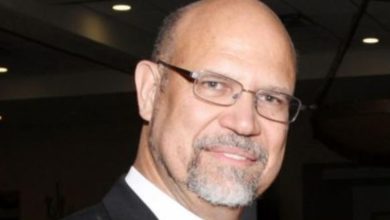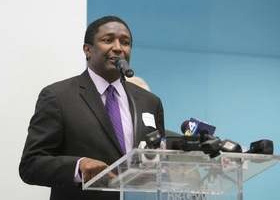Minorities are in critical need of organ and tissue donors
ATLANTA – Nearly half million minorities in the United States are waiting on organ transplants and Eve J.Higginbotham, MD, Dean of Morehouse School of Medicine (MSM) in Atlanta is calling on minorities to become organ and tissue donors.
As the United States prepares to observe National Minority Donor Awareness Day August 1, 2007, 51 percent of people in urgent need of transplants are minorities. Yet, studies show only 25 percent of organ donors are ethnic populations. Last year, research revealed that 20,841 minorities received organ transplants — but fewer than 3,000 deceased and fewer than 2,000 living organ and tissue donors were of African American decent, according to Donate Life America, a non-profit organization that provides education and information for potential donors.

Eve J. Higginbotham, MD, FACS
Dean & Senior Vice President
Morehouse School of Medicine
(PRNewsFoto/Morehouse School of Medicine)
“There are nearly 100,000 people of all ages, races, and religions in desperate need of life-saving organ transplants that may not come in time,” Dr. Higginbotham said. “Hundreds of thousands more are in need of tissue transplants to restore their health, mobility, and sight.” Dr. Higginbotham will lead a donor sign up event at Morehouse School of Medicine on August 1. “As an ophthalmic surgeon, I am especially aware of the miracle of sight that takes place when corneal tissue is donated.”
James W. Reed, MD, MACP, FACE, professor of medicine, associate chair of medicine for research, chief of endocrinology, chief of medicine service at Grady Memorial Hospital for Morehouse School of Medicine, and board-certified specialist in clinical hypertension is not only a leading expert in diseases that can often lead to organ transplantation — he is the recipient of an organ transplant.
“There is a greater number of minorities who need organ transplants, but there is a lack of donors. We need more organs than anyone, but we are the last ones to donate them, especially in the African-American community.
We are in the most need for kidney transplants, but we are the last to give them. I’m not sure if it’s because of superstition, or religion or something else, but it needs to be fixed,” stated Reed.
Reed received a kidney transplant several years ago from his sister. Although Reed’s need for a transplant was caused by a genetic problem, he said most kidney transplants result from diseases like hypertension and diabetes, both conditions that are prevalent in the American South.
Diabetes and high blood pressure are more common in minority communities. African Americans are 1.8 times more likely to have diabetes as non-Hispanic whites, according to the American Diabetes Association (ADA). Kidneys are the organs in highest demand, especially within the black community. Sixty-one percent (or almost 43,000 people) are in need of kidney transplants. Time on a waiting list means more time spent on dialysis, in the hospital – even death.
Medical experts agree one donor can improve and even save the life of more than 50 individuals. There are few restrictions to becoming a donor: a person may not be HIV-positive, have active cancer, or systemic infection.
Every major religion in the United States supports organ transplants and donations.
For more information on organ donation:
http://organdonor.gov/donation/who_donate.htm
http://www.diabetes.org/communityprograms-and-localevents/africanamericans.jsp


